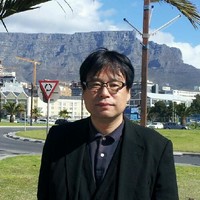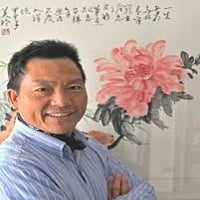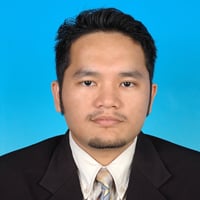KEYNOTE SPEAKERS
Prof. Takeshi Fukusako
Kumamoto University
(Japan )

Biography
Takeshi Fukusako (S’94–M’97) received the B.E., M.E., and Dr. Eng. degrees from Kyoto Institute of Technology, Kyoto, Japan in 1992, 1994 and 1997, respectively.,In 1997, he joined the Department of Electrical and Computer Engineering, Kumamoto University, Kumamoto, Japan. He is currently with the Department of Computer Science and Electrical Engineering, Kumamoto University, where he is an Associate Professor. From 2005 to 2006, he was a Visiting Scholar of the University of Manitoba, Winnipeg, Canada. His current research field is antenna design, especially broadband antennas, small antennas, and various microwave antennas and circuits.,Dr. Fukusako serves as the Vice-Chair of the IEEE AP-S Fukuoka Chapter from 2009 to 2010. He is a senior member of IEICE. He is Committee Memberships on IEEE Antennas and Propagation Society Administrative as committee Member, IEEE Antennas and Propagation Society as Associate Editor of IEEE Transactions on Antennas and Propagation, IEEE (Institute of Electrical and Electronic Engineering) Antennas and Propagation Society Fukuoka as Chapter Chair (Fukuoka Section), Progress In Electromagnetic Research Symposium (PIERS 2018 Toyama) as Technical Program Committee Member, Special Section in IEICE Trans Communication as Guest Associate Editor, Progress In Electromagnetic Research Symposium (PIERS 2017 Singapore) as Technical Program Committee Member, IEEE Journal on Multiscale and Multiphysics Computational Techniques as Guest Editor(2017), IEEE 2017 International Conference on Computational Electromagnetics (ICCEM2017) as General Chair, International Symposium on Antennas and Propagation (ISAP2016) as Technical Program Committee Member, IEEE 2016 International Conference on Computational Electromagnetics (ICCEM2017) as Technical Program Committee Member.
Dr. Mingchang Wu
National Yunlin University of Science and Technology
(Taiwan )

Biography
Dr. Mingchang Wu, Dean of School of Humanistic and Applied Science at National Yunlin University of Science and Technology (2016. 08.08 ~ Now), received his doctor degree at Purdue University, 1995, majoring Vocational and Technical Education. His academic interests focus on Vocational and Technical Education at Higher Education level, Occupational Psychology and Sociology, and Educational Development and Quality Evaluation. He undertook a series of educational improvement projects at the positions of Chairperson of Graduate School of Vocational Education (1998~2003), CEO of Program Evaluation in Taiwan (2000 ~ 2013), and Coordinator of Teaching Resource Center for 20 institutes in Central Taiwan (2008 ~ 2017). He is recently administering several research projects on the collaboration among universities for educational quality improvement and revitalization. What is most important, he is working with some international colleagues to conduct cross-cultural research.
Prof. Madya. Ir. Dr. Abd Kadir bin Mahamad
Universiti Tun Hussein Onn Malaysia
(Malaysia )

E-VOTING ON BLOCKCHAIN USING SOLIDITY LANGUAGE
Abstract
Electronic voting (e-voting) is a voting process that is done electronically without using paper and ballot box. During the election process, groups of registered voters use the electronic devices at voting centre to cast their ballots. However, current e-voting system required some improvement, especially in term of security elements. The e-voting system should not allow one voter to cast more than one time. This is against with the anonymize properties of e-voting system. Therefore, a blockchain system was designed to have a secure and transparency election process who stands for public position. Blockchain technology ensured all the aspects such as transparency, security and auditability were achieved without sacrificing privacy for voters. Based on this situation, the application of blockchain into the system can preserve the privacy of the voters and the fairness of voting process. Therefore, e-voting using blockchain system ensure transparency in the process of voting as well as to ensure that electoral frauds do not happen in the process. This system was developed to detect the fraud that occurs during the voting session using Solidity language. There are 3 cases were analysed and a questionnaire was done to evaluate the proposed system. As conclusion, this proposed system can shorter the time for voting proceed and cost saving because no need to print out the ballot.
Prof. Wisnu Jatmiko
( under confirmation)
Universitas Indonesia
(Indonesia )

Born in Surabaya, Wisnu Jatmiko received his Bachelors degree in Electrical Engineering from The Faculty of Engineering and M.Sc. degree from The Faculty of Computer Science, both are received from Universitas Indonesia in 1997 and 2000 respectively. In 2007, he received his Dr. Eng. degree from The Micro-Nano Systems Engineering, Nagoya University, Japan. Currently, he works at the Faculty of Computer Science, University of Indonesia, Indonesia as a lecturer and from September 2017 become a full Professor. With his guidance, his students have succeeded in entering several top universities in the world, such as Tokyo University, Nagoya University, Edinburgh University, Minnesota University, National University of Singapore, etc. From 2008 – 2012 and 2013 – 2017, he holds the research manager position at the Faculty of Computer Science for 2 periods. Then From 2017-2021, he holds the head of Master and Doctoral Programs in Computer Science, at the Faculty of Computer Science, Univeristas Indonesia.
Prof. Wisnu Jatmiko is regarded as a highly productive researcher. He has received over 25 grants as the main researcher. He has also more than 100 international publications that are mostly indexed in Scopus and Google Scholar. In addition, he has already published more than 10 books and produced 8 copyrights of computer software from his research products.
He is IEEE indonesian Section chair from 2019-now.


